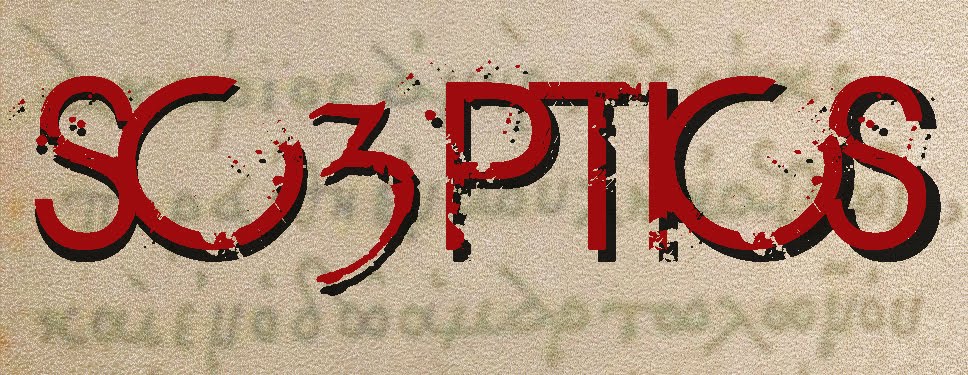This passage provoked a knee-jerk reaction from some of Harris' critics, who subsequently mischaracterized him as favoring torture. He recently authored a response to his critics, which he posted on his own blog, in a post titled Why I'd Rather Not Speak About Torture. He reflects,
I believe that there are extreme situations in which practices like “water-boarding” may not only be ethically justifiable, but ethically necessary—especially where getting information from a known terrorist seems likely to save the lives of thousands (or even millions) of innocent people. To argue that torture may sometimes be ethically justified is not to argue that it should ever be legal (crimes like trespassing or theft may sometimes be ethical, while we all have interest in keeping them illegal).What Harris is really asking us to do is to consider a thought experiment – one which need not use torture as its evil of choice. We could pose questions about any atrocity, and ask ourselves under what circumstances we might find them to be morally permissible. Imagine, for example, that a terrorist has captured you and your family; he says he'll detonate a low-yield nuclear bomb in the middle of New York City unless you molest your daughter. As ridiculous as the scenario is, clearly it would be more ethical to molest your daughter than to allow millions of people to die. Conjure up any atrocity you can imagine, and it's not difficult to think of a situation – no matter how unlikely – in which it would be the lesser of two evils.
However, while such thought experiments may give us pause on the belief that certain acts are "absolutely" right or wrong (even if only theoretically), they do little to illuminate our pragmatic struggles with moral dilemmas – and that, similarly, is where I find Harris' argument for torture to be unsatisfying.
Essentially, Harris is only able to get us to consider torture by getting us to imagine a scenario that is so implausible as to render it virtually impossible – something that sounds more like a scene from a James Bond film than real life. If Harris' only goal is to get us all to agree that we can imagine some scenario in which any given atrocity could become the lesser of two evils, then I think he's succeeded; however, I'm not convinced that's his goal, since he seems singularly focused on torture.
To that end, Harris hasn't offered a reason why, in any reasonable, pragmatic circumstance – the circumstances which are the center of much debate today, such as the use of waterboarding on prisoners – torture could ever be viewed as an acceptable practice. To his credit, Harris adamantly affirms that it should remain "illegal", but to the extent that the law is a reflection of our shared moral norms, it might seem that he's arguing that, in some extreme circumstances, those who resort to torture ought to get a pass. Indeed, Harris subsequently proposes the following law:
We will not torture anyone under any circumstances unless we are certain, beyond all reasonable doubt, that the person in our custody has operational knowledge of an imminent act of nuclear terrorism.I don't find this particularly objectionable, as again it's relatively implausible, but I would amend it as follows:
We will not torture anyone unless we are certain, beyond all reasonable doubt, that the person in our custody has operational knowledge of an imminent act of catastrophic terrorism and all other, more reliable means of obtaining intelligence have been exhausted.There are a couple of nitpicks with the original – one, that it's contradictory to say "under no circumstances" and then immediately posit an acceptable circumstance, and also that there are a great many ways to kill lots of people that don't involve nuclear bombs. This revised dictum is not only more accurate and more ethical, but it makes the scenario even more implausible. Torture is a notoriously ineffective means for attaining information. But even if it has some probability of success such that it could be effective in some circumstances, we must always first exhaust all other, more humane avenues of intelligence that are statistically more successful.
Whether we agree on the dictum or not, I think that Harris' point ultimately fails to be as provocative as he might like it to be. Here in the real world, we aren't dealing with James Bond style scenarios, and I suspect most reasonable individuals recognize that even the most atrocious act may be morally justified in extreme circumstances. The important question is whether torture should be used as an interrogation tactic in (relatively) mundane circumstances, and Harris hasn't offered us any new or compelling insights. Torture is fundamentally inhumane and ineffective, and should be roundly prohibited. If we fail to do so – if we allow ourselves to justify it when there are many other more effective and human means of obtaining intelligence – the limits of its application become arbitrary, and we risk even further devaluing human life, liberty and autonomy.


No comments:
Post a Comment